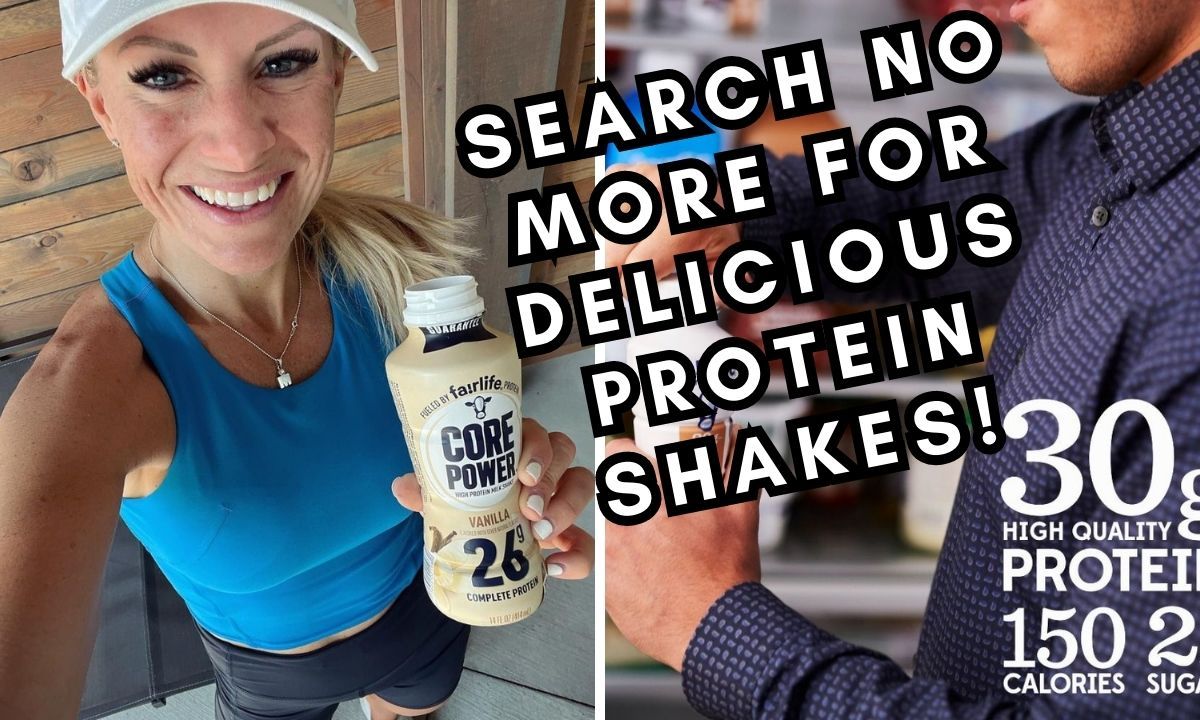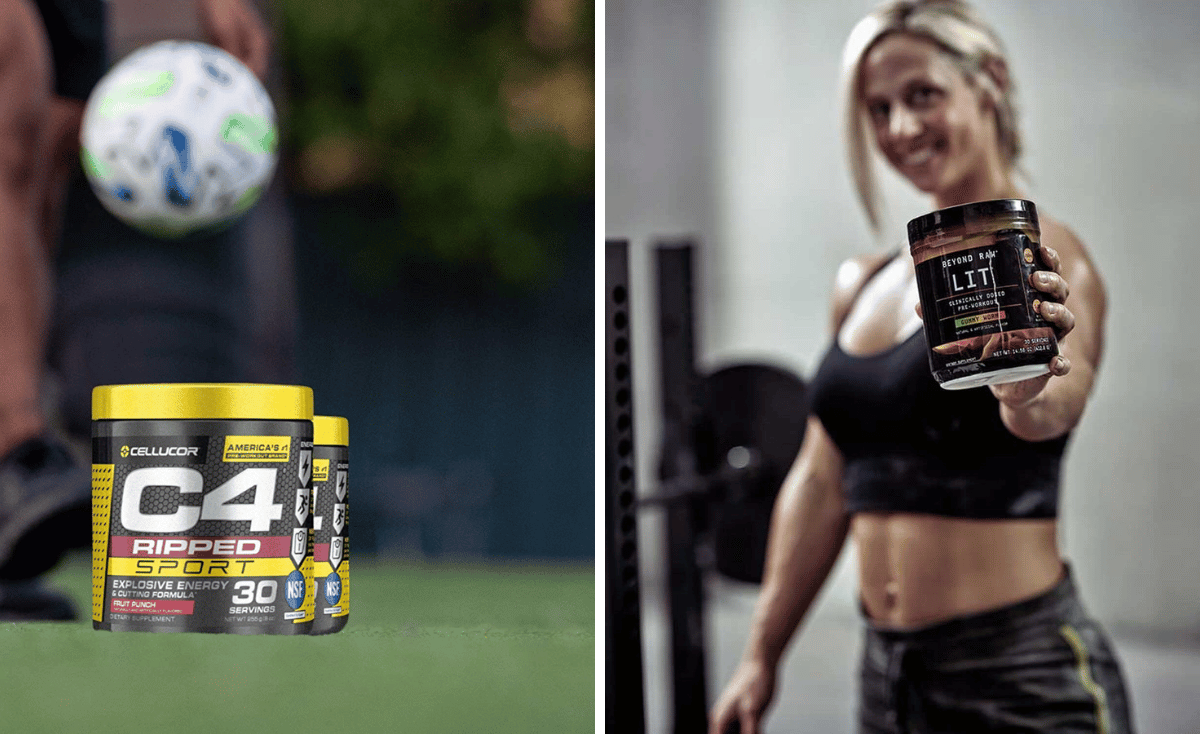Protein drinks have become increasingly popular in recent years, and for good reason. They offer a convenient and delicious way to meet your daily protein needs, support muscle growth, and aid in recovery after a workout.
With the vast array of protein drinks available on the market, you might be wondering, “What is the healthiest protein drink?” for your needs.
In this blog post, we’ll dive into the factors that contribute to a healthy protein drink, including protein source, essential amino acids, and added sugars.
We’ll also provide our top recommendations for the healthiest protein drinks of 2023, as well as tips for choosing the right protein drink based on your individual goals, dietary preferences, and lifestyle. Let’s get started!
Key Takeaways
- When selecting a protein drink, consider the source of protein, essential amino acid content and added sugar levels.
- Assess individual needs based on body weight, activity level and dietary restrictions for optimal health benefits.
- Consider cost as well as quality when evaluating factors such as third party testing to ensure safety.
Determining the Healthiest Protein Drink
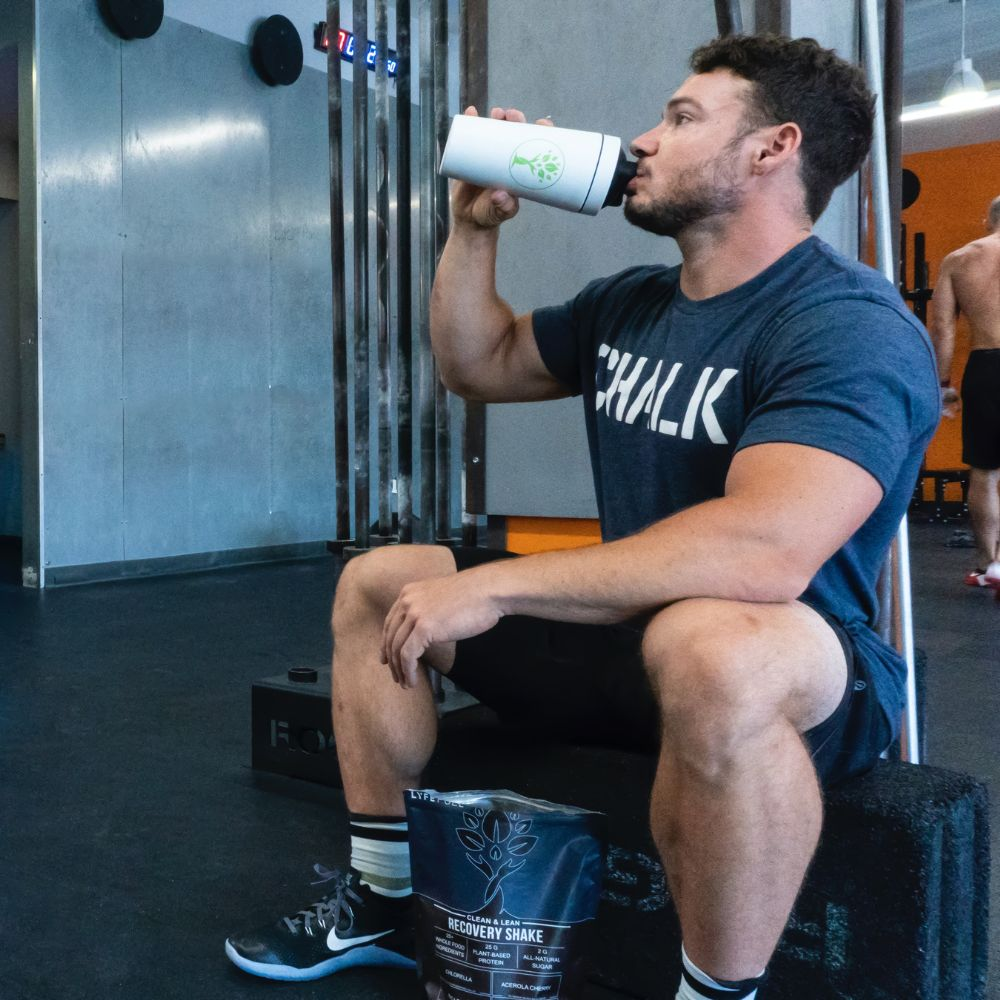
Several factors contribute to the overall healthiness of a protein drink, and these should be taken into account when making your selection. These include the protein source, the presence of essential amino acids, and the amount of added sugars in the product.
It’s important to remember that not all protein drinks are created equal, and some may be better suited for specific goals or dietary preferences.
We’ll examine these factors in the subsequent sections, including:
- Comparing different protein sources
- Discussing the importance of essential amino acids
- Evaluating the impact of added sugars and artificial sweeteners on overall health.
Protein Sources: Whey vs. Plant-Based
Whey and plant-based proteins are the two most popular options in protein shakes and powders. Whey protein, derived from milk, is a complete protein containing all nine essential amino acids and is highly bioavailable.
However, it may not be suitable for vegans or individuals with lactose intolerance, and could be more expensive than plant-based proteins.
On the other hand, plant-based protein sources such as pea protein, soy, and brown rice protein offer viable alternatives for vegans, vegetarians, and those with lactose intolerance.
While they may not provide the same level of bioavailability as whey protein, recent advancements in processing techniques have improved the quality and amino acid profile of plant-based protein powders.
Your dietary preferences and restrictions should factor into your protein source selection.
Essential Amino Acids
As the building blocks of proteins, essential amino acids play a pivotal role in muscle growth and recovery. A complete protein containing all nine essential amino acids is necessary for initiating the process of muscle growth.
This is why it’s important to choose a protein drink that provides a complete protein profile to support your fitness goals.
Whey protein, as mentioned earlier, is a complete protein and an excellent choice for individuals looking to build muscle. For those who prefer plant-based options, some protein powders, such as those made from a blend of pea and brown rice protein, can also provide a complete amino acid profile.
Additionally, whey protein isolate is another popular choice among fitness enthusiasts.
Make sure to check the product label to confirm that your chosen protein drink contains all the essential amino acids necessary for muscle growth and recovery.
Added Sugars and Artificial Sweeteners
Added sugars and artificial sweeteners are often used in protein drinks to enhance their taste and appeal. However, excessive consumption of added sugar can lead to weight gain and increase the risk of chronic diseases.
While artificial sweeteners may contain fewer calories than sugar, they can still have negative effects on health, such as altering gut bacteria and promoting sugar cravings.
The amount of added sugar or artificial sweeteners in your protein drink should be taken into account when making your selection. Look for protein drinks with minimal added sugars, and if you prefer a sweetened drink, opt for natural sweeteners like stevia or monk fruit instead of artificial alternatives.
Top 5 Healthiest Protein Drinks of 2023
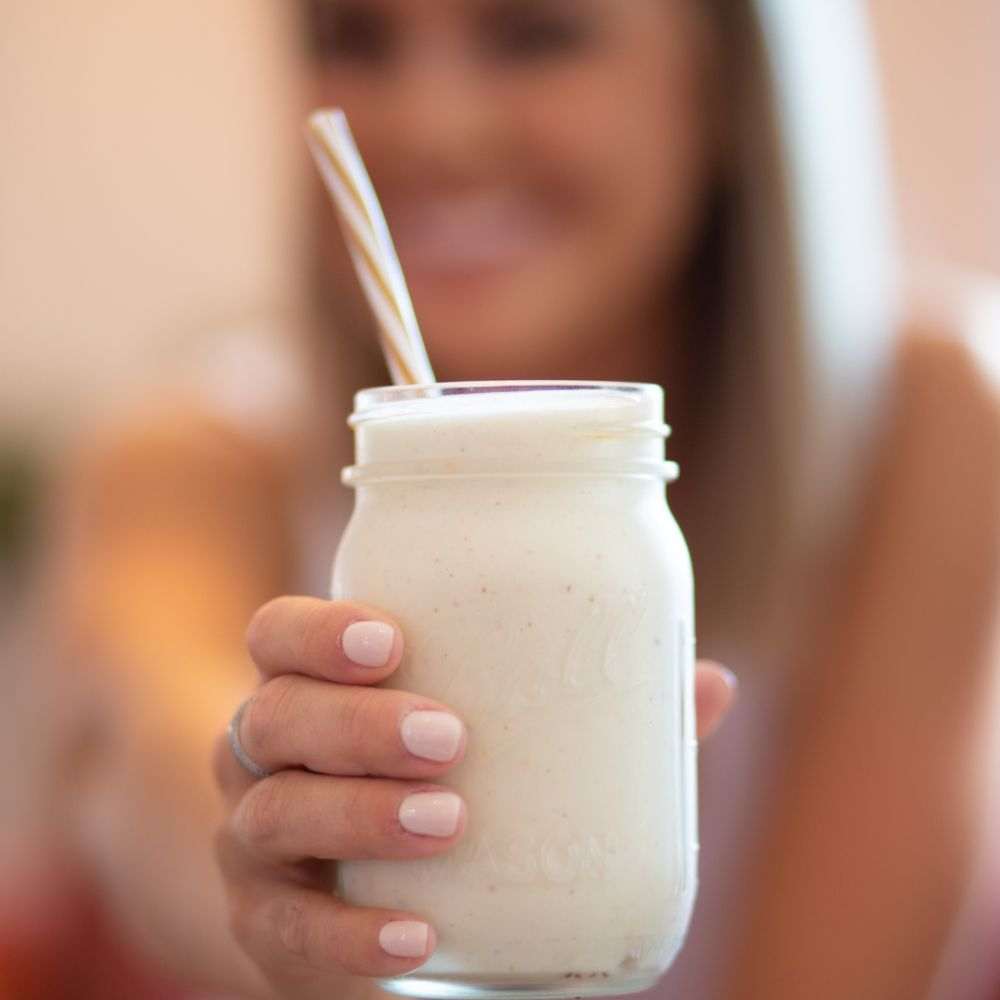
Having discussed the factors that contribute to a healthy protein drink, let’s move on to our top picks for the healthiest protein drinks of 2023. These recommendations are based on expert consultations and a thorough analysis of the nutritional content of each product.
- Best Overall: Fairlife Core Power
- Best Plant-Based: Power Life High Impact Plant Protein
- Best for Weight Loss: Premier Protein Shake
- Best for Muscle Gain: Power Life High Impact Whey Protein
- Best Allergy-Friendly: SEEQ Clear Whey Isolate Protein
Subsequent sections will offer a detailed breakdown of each of these highly-rated protein drinks, focusing on their benefits and unique features.
Best Overall: Fairlife Core Power
Our top pick for the best overall protein drink is Fairlife Core Power. This premium protein drink is made with high-quality ultrafiltered partly skimmed milk, monk fruit juice, and stevia, offering a nutritious and delicious beverage perfect for supporting your fitness goals.
Fairlife Core Power offers the following benefits:
- Contains all the essential amino acids required for muscle growth and recovery
- Boasts a comparatively low sugar content
- Has a well-rounded nutritional profile
- Provides exceptional taste
It is an excellent choice for those seeking a top-quality protein drink. Why are Fairlife protein shakes so popular?
Best Plant-Based: Power Life High Impact Plant Protein
For those looking for a plant-based protein drink, Power Life High Impact Plant Protein is our top choice. This pumpkin, sunflower, and flax seed protein powder is made from simple, natural ingredients, and provides a complete protein profile, ensuring you get all the essential amino acids needed for muscle growth and recovery.
Simply mix it with water or your favorite beverage to create a delicious protein shake.
Power Life High Impact Plant Protein is a great option for individuals following a vegan or vegetarian diet, or for those with lactose intolerance. Its high-quality ingredients and complete protein profile make it an excellent choice for supporting your plant-based fitness journey.
Best for Weight Loss: Premier Protein Shake
If your primary goal is weight loss, Premier Protein Shake is our top recommendation. This meal replacement protein drink offers a low-calorie option with satiety-promoting ingredients, making it an ideal choice for those looking to shed some pounds.
Premier Protein Shake contains a blend of fiber, protein, and healthy fats that can help minimize hunger and cravings, while providing essential nutrients to support your weight loss journey. Its convenient format and delicious taste make it a popular choice for those looking to lose weight without sacrificing flavor.
Best for Muscle Gain: Power Life High Impact Whey Protein
For those looking to build muscle, Power Life High Impact Whey Protein stands out as the top choice. This protein drink offers powerful whey proteins, HMB, vitamin D3, and digestive enzymes, which are essential for muscle growth and recovery.
Power Life High Impact Whey Protein is an excellent choice for athletes and fitness enthusiasts who are looking to increase their muscle mass and improve their performance. Its high-quality protein and BCAAs make it the ideal choice for supporting your muscle-building goals.
Best Allergy-Friendly: SEEQ Clear Whey Isolate Protein
For those with dietary restrictions or allergies, SEEQ Clear Whey IsolateProtein is the best allergy-friendly protein drink on the market. This protein drink is free from major allergens such as:
- soy
- gluten
- egg
- peanuts
- tree nuts
This makes it suitable for individuals with a range of dietary needs.
Seeq Clear Whey Isolate Protein is also suitable for lactose-intolerant individuals, as it is free from dairy ingredients. Its clean label and allergy-friendly formulation makes it an excellent choice for those with specific dietary requirements or sensitivities.
How to Choose the Right Protein Drink for Your Needs
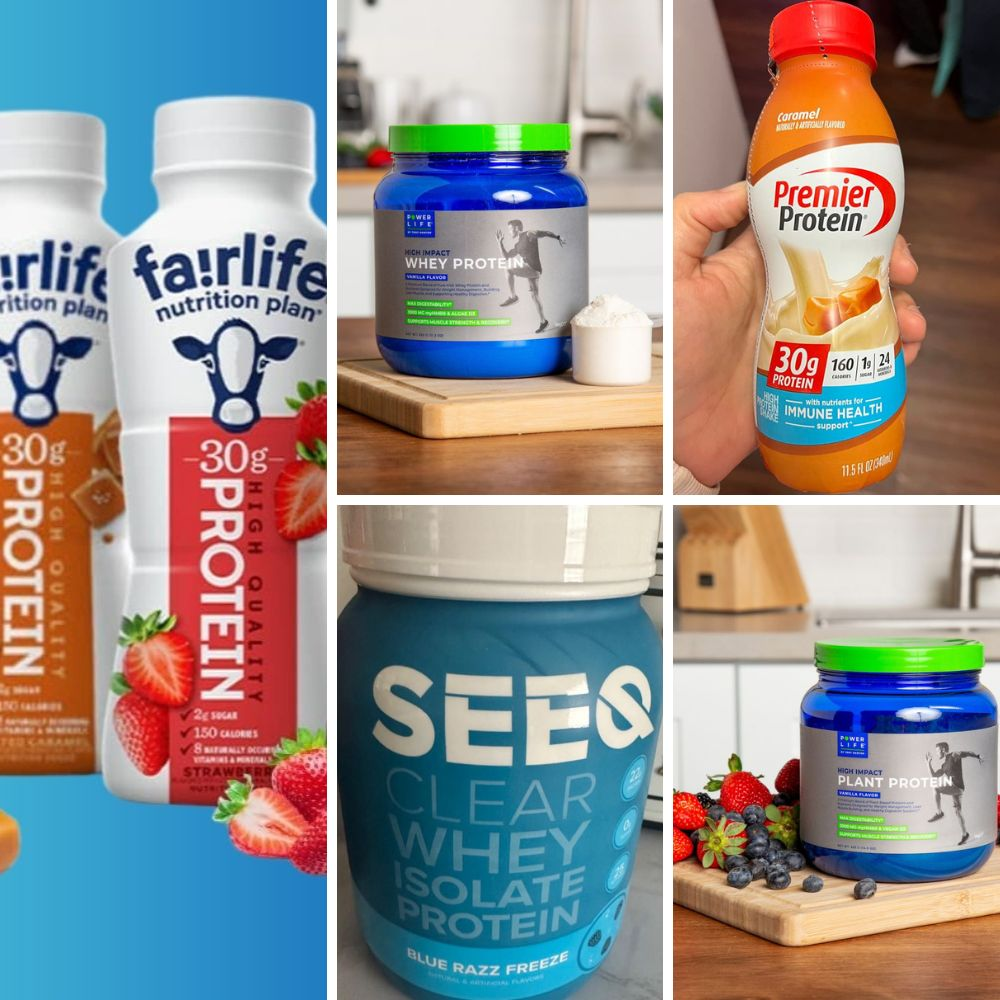
The wide array of protein drinks and dietary supplements available can make choosing the right one for your needs a daunting task. Your personal goals, dietary preferences, and lifestyle should all factor into your decision.
The subsequent sections will guide you on assessing your protein needs, taking into account dietary restrictions and allergies, and finding a balance between cost and quality.
With a clear understanding of your individual needs and preferences, you’ll be able to confidently choose a protein drink that not only supports your fitness goals but also complements your overall nutrition plan.
Assessing Your Protein Needs
Understanding your daily protein intake requirements is a key first step in selecting the appropriate protein drink for your needs. Factors such as body weight, activity level, and dietary restrictions should all be considered when calculating your protein needs.
A general guideline for protein intake is to consume 0.8 grams of protein per kilogram of body weight daily. However, this may vary depending on factors such as your activity level and specific fitness goals.
For personalized advice on your protein needs, consider consulting with a healthcare professional or registered dietitian.
Considering Dietary Restrictions and Allergies
Be sure to factor in any dietary restrictions or allergies you may have when choosing a protein drink. For instance, if you’re lactose intolerant or follow a vegan diet, you’ll want to choose a protein drink that caters to your specific needs, such as a plant-based protein powder or a lactose-free option.
There are a variety of vegan, gluten-free, and lactose-free protein drinks available on the market, so be sure to read the product label and ingredients list to find a suitable option for your dietary needs.
Balancing Cost and Quality
Finding a balance between cost and quality is vital when choosing a protein drink. While some cheaper options may seem appealing, they may not provide the same level of nutritional benefits as higher-quality protein drinks.
Factors such as protein rating, ingredient quality, and product reputation should all be considered when determining the best value for your money.
One way to ensure you’re getting a high-quality protein drink is to look for third-party testing and certification, such as those provided by USP, NSF, or ConsumerLab.com.
This ensures that the product meets safety and quality standards, and that the ingredients are accurately labeled.
Protein Drinks and Exercise
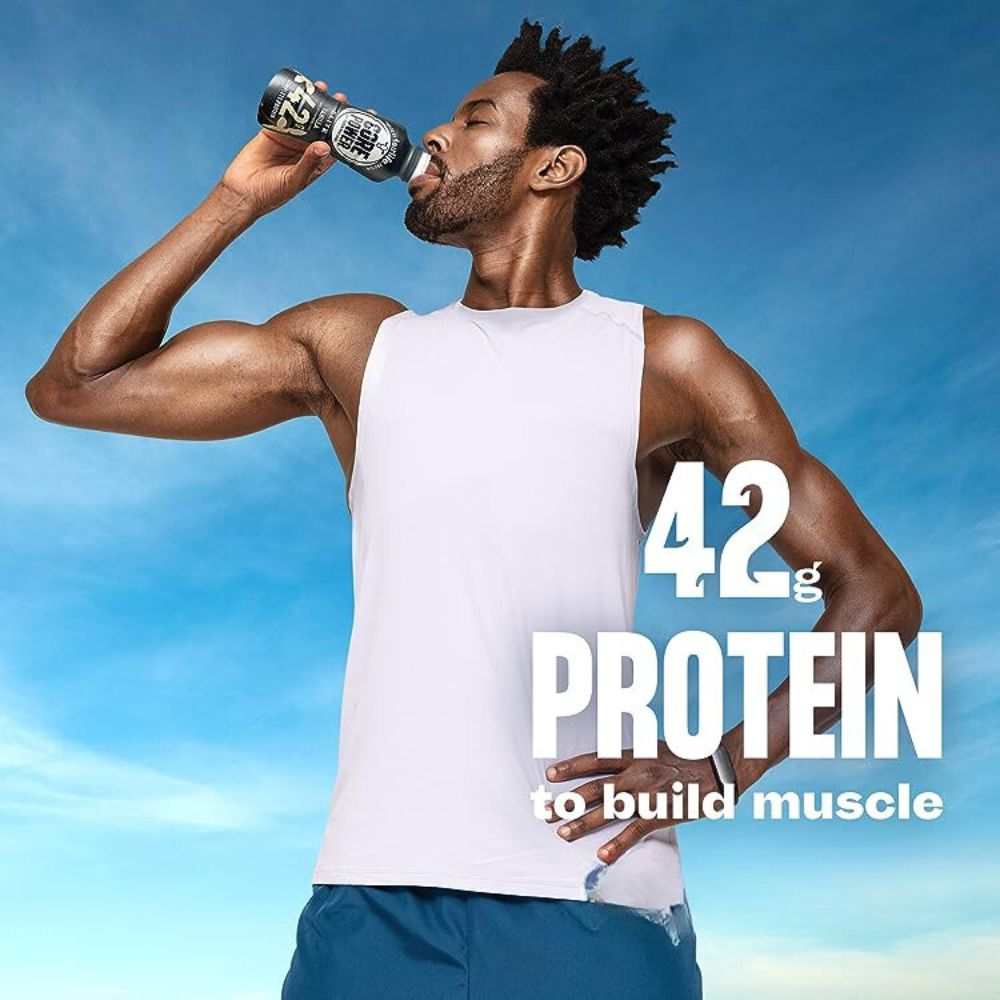
Protein drinks can play a significant role in supporting exercise performance, muscle recovery, and overall fitness goals. When used in conjunction with a balanced diet and regular exercise, protein drinks can help you reach your desired physique and athletic performance more efficiently.
The subsequent sections will delve into the optimal timing for protein drink consumption in relation to your workouts, and highlight the importance of incorporating protein drinks into a balanced diet filled with whole foods and essential nutrients.
Timing Your Protein Intake
The timing of your protein intake can have an impact on your exercise performance, muscle recovery, and overall fitness goals. While consuming protein drinks pre-workout can provide an energy boost and help support muscle endurance, post-workout protein consumption is particularly beneficial for jumping-starting the recovery process and promoting muscle growth.
The most advantageous time to consume protein drinks depends on your individual goals and preferences. Some people may find it beneficial to consume protein drinks throughout the day to help meet their protein needs, while others may prefer to consume protein drinks specifically before or after their workouts to support muscle growth and recovery.
Combining Protein Drinks with a Balanced Diet
Despite being a convenient source of protein and other essential nutrients, protein drinks should not be used as a replacement for whole foods in your diet. A balanced diet should include a variety of whole foods, such as:
- fruits
- vegetables
- whole grains
- lean proteins
- healthy fats
By incorporating protein drinks into your diet alongside a balanced meal plan, you can ensure you’re getting all the nutrients you need to support your fitness goals and overall health. Remember, protein drinks should be regarded as a supplement to your diet, not a substitute for nutritious meals.
Potential Risks and Side Effects of Protein Drinks

Protein drinks can provide numerous benefits for those aiming to enhance their fitness and overall health. However, potential risks and side effects associated with excessive protein consumption and contaminated products should not be overlooked.
The subsequent sections will address the issues related to overconsumption and emphasize the importance of selecting high-quality, third-party tested protein drinks. Being aware of these potential risks will enable you to make informed decisions in selecting and consuming protein drinks that support your health and fitness goals.
Overconsumption Concerns
Consuming too much protein can lead to potential health issues, such as kidney problems and digestive discomfort. Most individuals, including those who are physically active and looking to build muscle mass, do not benefit from consuming more than 25-30 grams of protein per serving.
To avoid the negative effects of excessive protein consumption, it’s important to calculate your daily protein needs and choose protein drinks that align with those requirements. This can help ensure you’re getting the right amount of protein to support your health and fitness goals without overloading your system.
Contamination and Quality Control
Choosing a high-quality, third-party tested protein drink is vital to ensure accurate labeling and prevent contamination. Some protein drinks may contain impurities or artificial sweeteners that can be detrimental to your health, particularly for competitive athletes who may face disqualification due to the consumption of banned substances.
By prioritizing third-party tested and certified protein drinks, you can have peace of mind knowing that you’re consuming a safe and high-quality product that supports your health and fitness goals.
Summary
In conclusion, choosing the healthiest protein drink involves considering factors such as protein source, essential amino acids, and added sugars. Our top picks for the healthiest protein drinks of 2023 cater to a variety of individual goals and dietary preferences, ensuring there’s an option for everyone.
Remember to assess your protein needs, consider dietary restrictions and allergies, and balance cost and quality when selecting a protein drink. Most importantly, incorporate protein drinks into a balanced diet and regular exercise routine to support your health and fitness goals.
With the right approach, protein drinks can be a valuable tool on your journey to a healthier, more active lifestyle.
Frequently Asked Questions
What protein shakes do doctors recommend?
Doctors recommend Naked Whey Protein Powder, Core Power, and OWYN protein shakes for their high protein content and quality ingredients.
All three are third-party certified to ensure purity, potency, and safe manufacturing practices.
Is it OK to drink a protein drink everyday?
It is okay to drink protein shakes everyday in moderation, however they should not replace full meals. Too many shakes can lead to consuming too many calories and missing out on vital nutrients found in whole food sources, so it’s important to focus on a balanced diet first.
What is the best protein drink for losing weight?
For those looking to support weight loss efforts, Muscle Milk Genuine Protein Shake is an excellent option. With whey protein isolate, natural flavoring, and stevia as sweeteners, it helps give the body necessary protein and BCAAs and keep you feeling full for hours.
GNC Lean Shake Burn, Thorne Whey Protein Isolate, Ora Organic So Lean So Clean, NuFyx Heavenly Protein Powder, and Dymatize ISO100 Hydrolyzed are all recommended for weight loss.
Are protein drinks necessary for everyone?
Protein drinks are not necessary for everyone, as individual protein needs can generally be met through whole foods.
However, they can be a convenient and useful supplement for those who need additional protein or have difficulty getting enough through their diet.
How much protein should I consume daily?
For general reference, 0.8g/kg of body weight is the recommended daily protein intake.
However, for tailored advice you should consult with a healthcare professional or registered dietitian.

